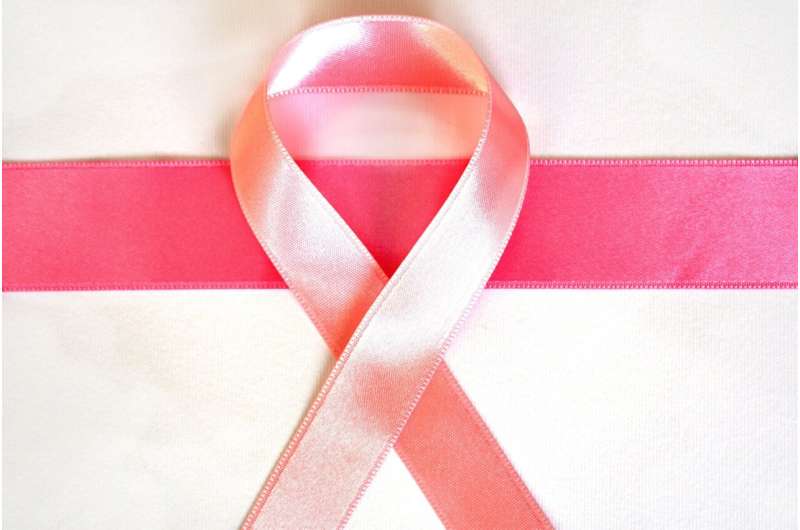This article has been reviewed according to Science X's editorial process and policies. Editors have highlighted the following attributes while ensuring the content's credibility:
fact-checked
peer-reviewed publication
trusted source
proofread
Study shows skin fungus colonization accelerates breast cancer tumor growth

A common skin fungus, Malassezia globosa may invade deep tissues through the skin or by other means, then cause tumor growth, according to a new study. The study results were reported in mBio.
"It is important to take care of skin not only for beauty, but also for health," said corresponding study author Qi-Ming Wang, Ph.D., a professor in the School of Life Sciences, Institute of Life Sciences and Green Development, Hebei University, Hebei, China. "As a factor promoting tumor growth, intertumoral microorganisms need to be paid more attention."
Recently, an increasing number of studies have shown a relationship between fungus and cancer. In the new study, Wang and colleagues subjected mouse breast cancer cells to tumor transplantation and then injected the M. globosa into the mammary gland fat pad. At the end of the experiment, they collected the tumor tissue to measure the tumor size and observe the content of intertumoral M. globosa.
The researchers discovered that M. globosa colonizes in breast fat pads leading to tumor growth. As a lipophilic yeast, the breast fat pad may provide an external source of lipids for the development of M. globosa, say the researchers.
They also found that the pro-inflammatory cytokine interleukin (IL)-17a/macrophage axis plays a key role in mechanisms involved in M. globosa-induced breast cancer acceleration from the tumor immune microenvironment perspective.
"Although still controversial, the relationship between microbes and cancer is gaining attention. The imbalance of the microflora in the tumor may lead to disorder in the tumor microenvironment," Wang said.
"For example, Helicobacter pylori emerged as a potential cause of gastric cancer. In addition, Fusobacterium nucleatum has been identified as a potential colorectal cancer biomarker in stool and is predominantly found in the tumor microenvironment.
"Bacteria or fungi may play a direct (e.g., toxins) or indirect (e.g., inhibition of anti-tumoral immune responses) role in the tumorigenesis pathways of many of these risk factors. The imbalance of microbial homeostasis in tumors has a certain significance for cancer diagnosis, treatment and prognosis."
According to Wang, although the researchers found that M. globosa can promote the growth of tumors, the related transmission route is still unclear.
More information: mBio (2024). journals.asm.org/doi/10.1128/mbio.01993-24



















